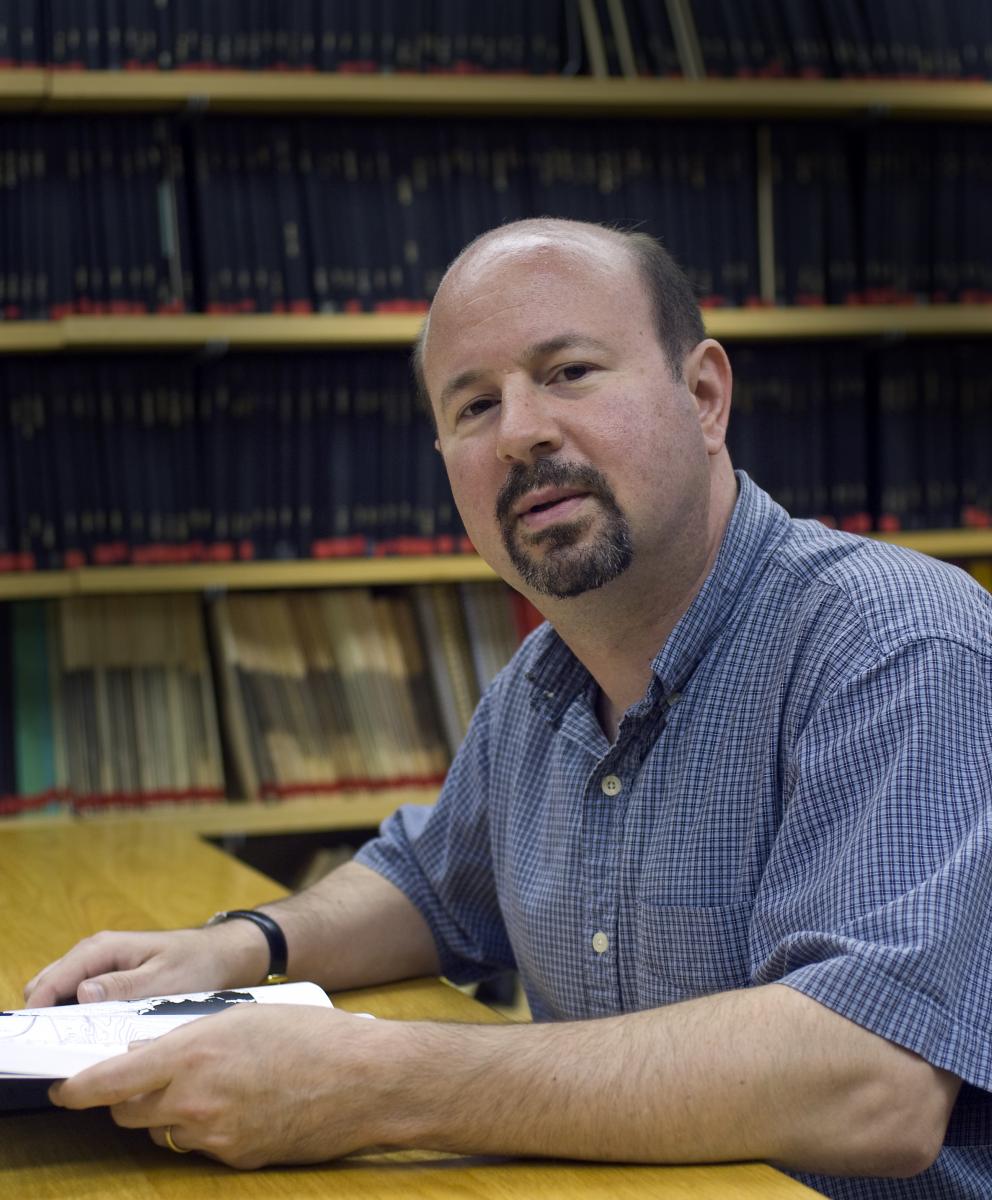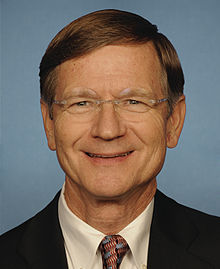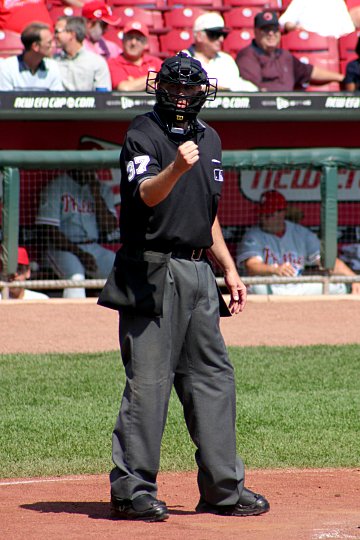“Ownage is ownage.” That’s what Mike Krukow, one half—along with Duane Kuiper—of the legendary San Francisco Giants broadcasting team, says when a great hitter just can’t get a hit on a certain pitcher. Or a great pitcher just can’t seem to get a certain hitter out. In my book, when it comes to explaining reality, science should have ownage over politics. Because you know that old Daniel Patrick Moynihan quote: everyone is entitled to his own opinion, but not to his own facts. And science is a powerful way to determine what the facts are. But lately, in the House Science Committee, politics is trying hard to establish ownage over science.
Michael E. Mann is one of many scientists crying foul. Mann, Distinguished Professor of Meteorology and Director of the Earth System Science Center at the Pennsylvania State University, graduated with honors from the University of California, Berkeley, with an A.B. in applied mathematics and physics. He went on to earn his Ph.D. in geology and geophysics from Yale University. He was one of the lead authors of the “Observed Climate Variability and Change” chapter of the third IPCC Third Assessment Report, published in 2001, which helped to win the 2007 Nobel Peace prize for the IPCC. He is perhaps most famous for a 1999 paper that included the original “hockey stick” graph showing a dramatic increase in the Earth’s temperature since the beginning of the Industrial Revolution. TL;DR version: the guy’s got some serious scientific chops.
the Pennsylvania State University, graduated with honors from the University of California, Berkeley, with an A.B. in applied mathematics and physics. He went on to earn his Ph.D. in geology and geophysics from Yale University. He was one of the lead authors of the “Observed Climate Variability and Change” chapter of the third IPCC Third Assessment Report, published in 2001, which helped to win the 2007 Nobel Peace prize for the IPCC. He is perhaps most famous for a 1999 paper that included the original “hockey stick” graph showing a dramatic increase in the Earth’s temperature since the beginning of the Industrial Revolution. TL;DR version: the guy’s got some serious scientific chops.
Mann is also famous for being the target of attacks in 2005 by Rep. Joe L. Barton (R–Texas) and Senator Jim Inhofe (R–Oklahoma)—he of the snowball in the Senate chamber incident. Barton sought access to all of Mann’s personal e-mails and notes in an effort to show that the hockey stick results were concocted by a scientific conspiracy. The Inspector General of the United States, the Office of the Inspector General, and the National Science Foundation, in three separate inquiries, eventually totally exonerated Mann. It was a wrenching experience, but one that inspired Mann to step up his efforts as a spokesman for science and the importance of protecting the scientific enterprise from political interference. (In the next issue of Reports of the National Center for Science Education, we have an interview with Mann (a member of NCSE’s advisory council) that describes how “Climategate” changed his life. (Shameless plug: join NCSE today to get RNCSE in your mailbox in January.)
 Meanwhile, Congressman Lamar Smith (R–Texas) also went to Yale. He says that he intended to study physics there, but, as a first-year student in a physics class, “I soon realized that I was sitting next to the future Einsteins of the world, and I wasn't one of them.” That, apparently, is where his formal acquaintance with science, and any possible comparison to Michael Mann, ends. From Yale, Smith went on to law school, practiced for a couple of years, then went into politics. He’s been a member of Congress since 1986 and on the House Science Committee for 26 years. In 2011 he became its chair. He was already known as a staunch rejecter of the scientific evidence for climate change (I won’t dignify that with the word “skeptic”).
Meanwhile, Congressman Lamar Smith (R–Texas) also went to Yale. He says that he intended to study physics there, but, as a first-year student in a physics class, “I soon realized that I was sitting next to the future Einsteins of the world, and I wasn't one of them.” That, apparently, is where his formal acquaintance with science, and any possible comparison to Michael Mann, ends. From Yale, Smith went on to law school, practiced for a couple of years, then went into politics. He’s been a member of Congress since 1986 and on the House Science Committee for 26 years. In 2011 he became its chair. He was already known as a staunch rejecter of the scientific evidence for climate change (I won’t dignify that with the word “skeptic”).
Terrifyingly, of the three Republican Science Committee members seeking the committee chairmanship back in 2011, Smith was arguably the least crazy contestant with respect to climate change. That was, I should add, a low bar, as one of his rivals, Rep. Dana Rohrabacher (R–California), suggested in a hearing that dinosaur farts contributed to past global warming, while the other, Rep. James Sensenbrenner Jr. (R–Wisconsin), once claimed that the EPA might require farmers to put catalytic converters on cows to reduce greenhouse gas emissions. Well, Smith won the chairmanship, but Sensenbrenner and Rohrabacher are still on the committee, so there’s a whole lot of crazy to go around.
Frankly, though, I’d prefer any amount of crazy talk to what Smith has been up to, which is, as I’ve written about here and here, seeking scientists’ and government officials’ personal e-mails on the theory (n.b.: not theory in the scientific sense of a unifying explanation for a wide range of natural phenomena, but theory in the vernacular sense of a wild idea for which there is no evidence whatsoever) that they have subverted the scientific process and conspired to publish fraudulent information. In short, Smith is accusing scientists and government officials of manipulating data, lying about it, and withholding evidence.
Those are serious accusations, for which there is—as Krukow would say—none evidence. Nevertheless, in the face of near-universal criticism from scientists, scientific societies, and his Democratic committee colleagues, Smith is doubling down on his postulations that scientists have something to hide and he has the right to ask them for anything he wants.
And that’s where Michael Mann comes in. In an opinion piece published today in The New York Times entitled “The Assault on Climate Science,” Mann describes Smith’s various attempts to bully and intimidate scientists. But perhaps what is most chilling about Mann’s article is this: when Mann himself was under attack from Rep. Barton and Sen. Inhofe, many members of Congress from both sides of the aisle came to his defense, including Rep. Sherwood Boehlert (R–New York, then the House Science Committee chair) and Sen. John McCain (R–Arizona). Today, by contrast, in Mann’s words: “Mr. Smith’s efforts at intimidation have met with no resistance from his fellow Republicans.”
The intensifying polarization between Republicans and Democrats has so many terrible consequences for our country, but from my point of view, the dragging of science into the mix is particularly distressing. It means discrediting the best tool we have for objectively investigating the world around us. For politicians, it means rejecting one of the best possible ways to explain to voters why it’s sometimes important to take difficult political decisions. And for NCSE, turning science into a political football means that even more science teachers will be uncomfortable presenting the science of evolution and climate change forthrightly and without apology.
 It’s high time for Smith’s Republican colleagues to stand up for science, to object to the politically motivated use of intimidation tactics, and to tell Smith—to use a baseball metaphor—that he has struck out, looked silly in the process, and needs to go sit on the bench now. If they like, I bet Mike Krukow wouldn’t mind if they used another of his trademark phrases (at 1:21 in this review of the immortal Kruk and Kuip bobblehead): “Grab some pine, meat!”
It’s high time for Smith’s Republican colleagues to stand up for science, to object to the politically motivated use of intimidation tactics, and to tell Smith—to use a baseball metaphor—that he has struck out, looked silly in the process, and needs to go sit on the bench now. If they like, I bet Mike Krukow wouldn’t mind if they used another of his trademark phrases (at 1:21 in this review of the immortal Kruk and Kuip bobblehead): “Grab some pine, meat!”

